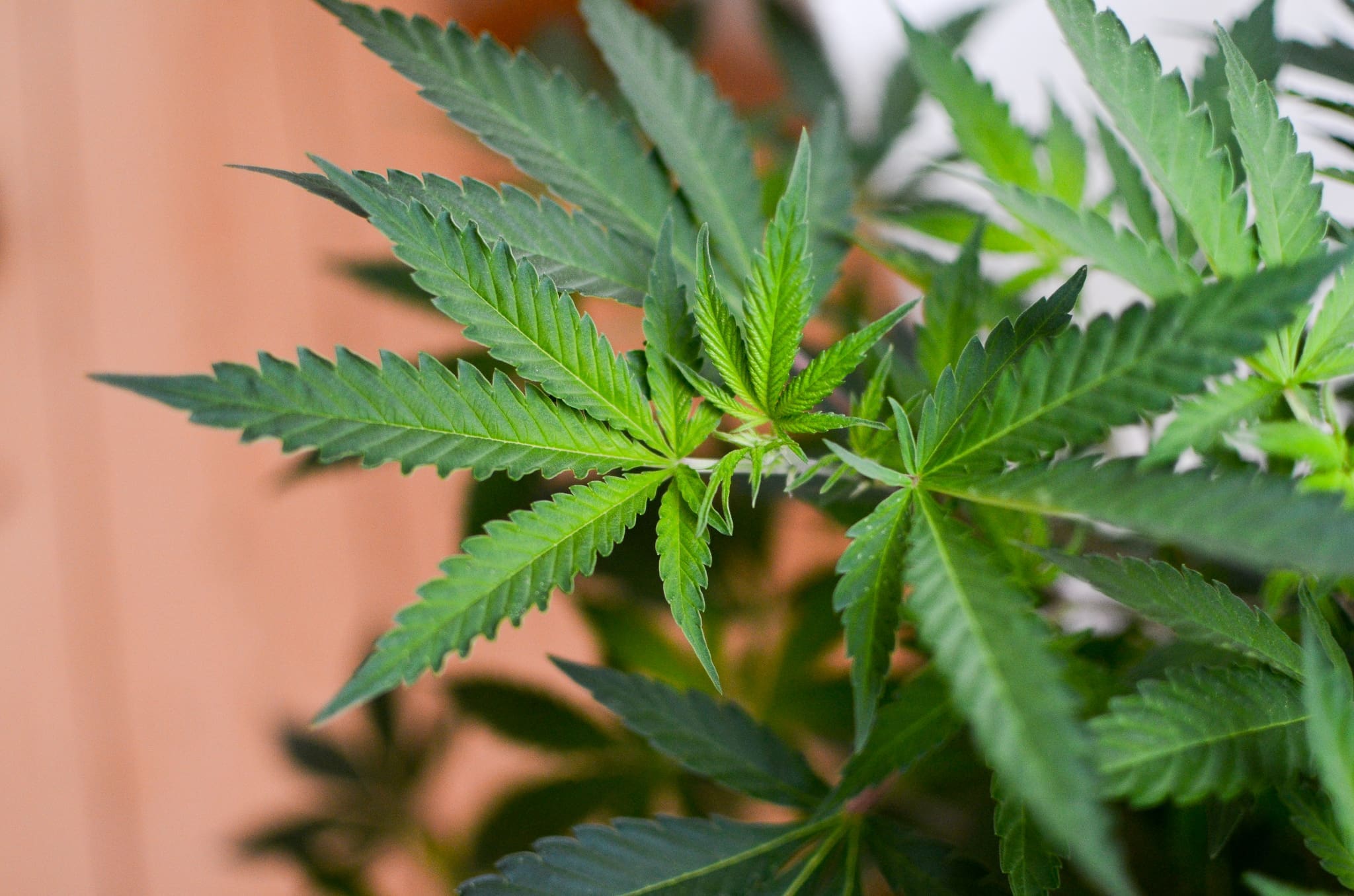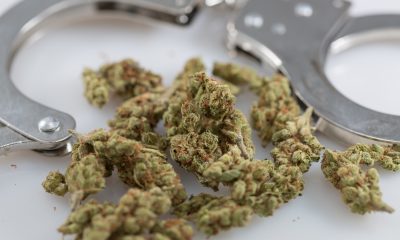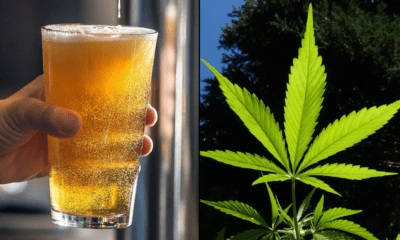Politics
Texas Senate Advances Bill To Lower Penalties For Marijuana Concentrates That Already Passed The House

A Texas Senate committee on Monday approved a House-passed bill to significantly reduce penalties for possessing marijuana concentrates, sending it to the full chamber for consideration.
Meanwhile, another panel advanced hemp legislation but not before adding language that would severely restrict delta-8-THC products.
The moves come as advocates step up their push for separate bills to expand the state’s medical cannabis program and broadly decriminalize marijuana possession.
While the concentrates measure that is advancing might be a modest reform in comparison, if enacted it would mark the first time that Texas has reduced penalties associated with marijuana since the 1970s.
The proposal, sponsored by House Speaker Pro Tem Joe Moody (D), cleared the Senate State Affairs Committee in a 5-2 vote.
It would create a new drug schedule for products containing THC that would carry lower penalties compared to their current felony classification. However, possession of up to two ounces of concentrates would still be a class B misdemeanor that carries the threat of jail time.
The types of products that would be covered under the new category include oils, infused lotions and edibles.
Separately on Tuesday, the Senate Water, Agriculture & Rural Affairs Committee advanced a House-passed bill that would make certain changes to the state’s hemp program, including imposing rules related to the transportation and testing of consumable hemp products. But the panel added an amendment that advocates oppose because it would ban products with more than trace amounts of delta-8-THC products, which they say would deliver an economic blow to the hemp industry.
Meanwhile, advocates continue to hold out hope that bills to decriminalize marijuana and expand the state’s medical cannabis program will make it through the Senate after passing the House in recent weeks.
“The Texas legislature hasn’t adjusted our state’s harsh marijuana penalties since the 1970s,” Heather Fazio, director of Texans for Responsible Marijuana Policy, told Marijuana Moment. “Finally, lawmakers are recognizing the disproportionate punishment for cannabis concentrates. This bill doesn’t get us where we want to go, but it’s a meaningful step in the right direction.”
The decriminalization measure would make possession of up to one ounce of cannabis a class C misdemeanor that does not come with the threat of jail time. The House approved a cannabis decriminalization bill in 2019, but it did not advance in the Senate that session.
When it comes to medical cannabis expansion, a House-passed bill would add cancer, chronic pain and post-traumatic stress disorder (PTSD) as conditions that could qualify people for the state’s limited medical cannabis program.
It would further allow the Department of State Health Services to add more qualifying conditions via administrative rulemaking. And it would also raise the THC cap for medical marijuana products from 0.5 percent to five percent.
—
Marijuana Moment is already tracking more than 1,100 cannabis, psychedelics and drug policy bills in state legislatures and Congress this year. Patreon supporters pledging at least $25/month get access to our interactive maps, charts and hearing calendar so they don’t miss any developments.
![]()
Learn more about our marijuana bill tracker and become a supporter on Patreon to get access.
—
Many of the current cannabis proposals face an uphill battle in the Senate, where it remains to be seen whether key legislators will have the same appetite for reform that the House does or what kind of changes they might push for in any particular bill.
And perhaps the biggest challenge advocates face is Lt. Gov. Dan Patrick (R), who presides over the Senate and has killed prior efforts to enact marijuana reform in the state, raising questions about the prospects of far-reaching changes advancing in the chamber.
For example, shortly after the House approved a decriminalization bill in 2019, Patrick declared the measure “dead in the Texas Senate,” stating that he sides with lawmakers “who oppose this step toward legalization of marijuana.”
That said, Patrick and other legislators acknowledged early in the year that modest proposals would be taken up and potentially approved this session, particularly as it concerns expanding the state’s limited medical cannabis program. The lieutenant governor said, “sure, that will be looked at this session” when asked about the prospect of expanding access to medical marijuana in January.
“We’re always listening on the health issues, but we’re not going to turn this into California,” he said, “where anybody can get a slip from the doctor and go down to some retail store and say, ‘You know, I got a headache today so I need marijuana,’ because that’s just a veil for legalizing it for recreational use.”
While Patrick could singlehandedly quash the cannabis measures, other legislative leaders are more open to reforms.
House Speaker Dade Phelan (R) said during a Texas Young Republicans event in March that while he wouldn’t be able to distinguish marijuana from oregano, he said, “I understand the issue.”
The speaker said that he voted for a limited medical cannabis legalization bill during his freshman year in the legislature, and his support for the reform is partly based on the fact that he has a “sister with severe epilepsy, and small amounts of CBD oil makes a big difference in people’s lives.”
Phelan also noted that he was a “joint author—no pun intended” of cannabis decriminalization legislation last session.
“I was able to go back home and explain it, and it wasn’t a big deal,” he said. “To me, it’s a reasonable criminal justice reform issue.”
Meanwhile, a Senate committee is set to take up a different kind of drug policy reform measure on Wednesday. The bill, which cleared the House earlier this month, would require the state to conduct a study into the therapeutic potential of psychedelics like psilocybin and MDMA.
The Senate Veterans Affairs & Border Security Committee is scheduled to discuss the proposal.
Separate legislation to clarify that a positive marijuana test alone is not sufficient criteria for removing a child from their home was enacted without the governor’s signature this month and takes effect on September 1, 2021.














